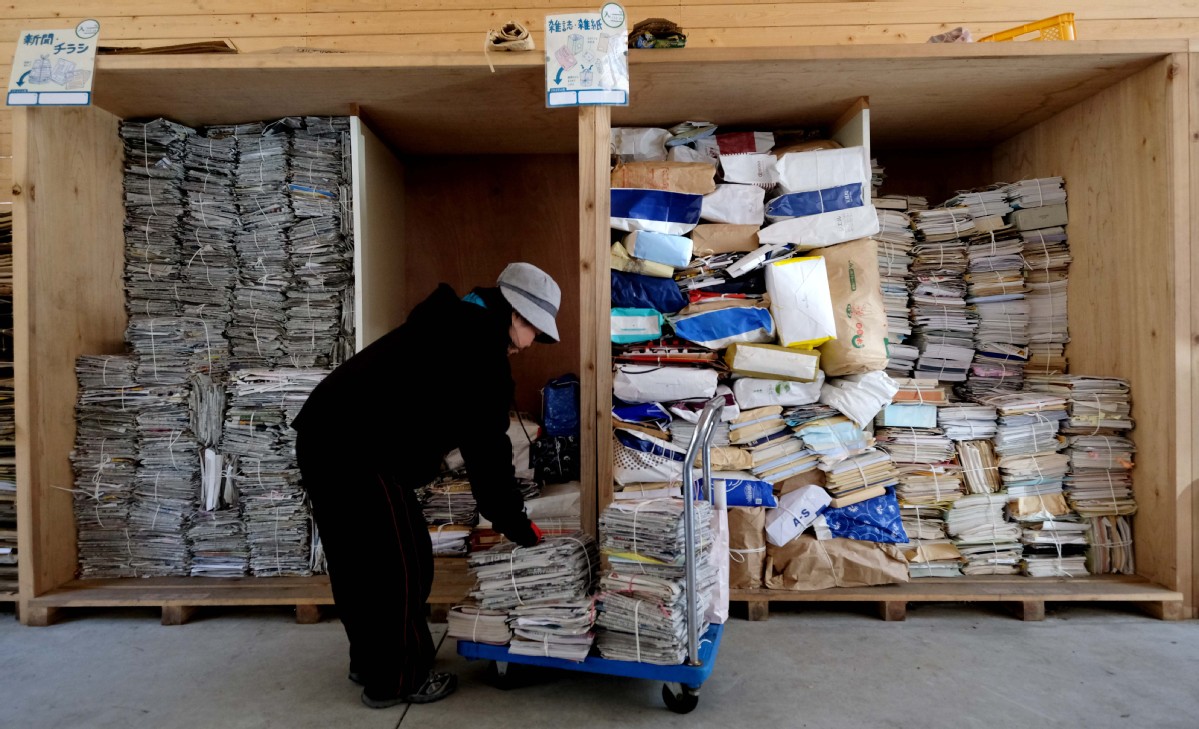Getting to zero: Japan town aims to recycle all its waste
China Daily | Updated: 2019-06-17 09:48

KAMIKATSU, Japan - Plastic, paper, metal? In Japan's Kamikatsu, sorting rubbish isn't that simple. Residents face a mind-boggling 45 separate categories for their garbage as the town aims to be "zero-waste" by 2020.
And that's not all: The town in western Japan doesn't even have trash collection service. The 1,500 residents have to transport their waste themselves to the local facility.
"Yes, it's complicated," said Naoko Yokoyama, a 39-year-old resident who had brought her trash to the town's waste center.
"But I have become more environmentally conscious since I moved here a year ago," she said.
The disposal categories cover everything from pillows to toothbrushes as the town aims to recycle all its waste, sending nothing to incinerators, by next year.
The process can be onerous. Not only are there dozens of separate categories, but items like plastic bags and bottles must be washed and dried to facilitate recycling.
At the town's waste facility, there are dozens of different boxes for each category. If the parts of an item fall into different categories for recycling, residents are expected to take them apart and send each bit to the right container.
One man who had brought in a shelf had to use a hammer to pry the wood from the metal, while elsewhere workers chopped up a thick, long rubber tube so it would fit into a sorting box.
Kazuyuki Kiyohara, manager of the waste center, said plastic makes up the majority of the residents' waste - and despite the program, there has been little reduction in consumption.
"Our lifestyle depends mainly on plastic," the 38-year-old said, adding: "Consumers can reduce plastic waste to a certain extent, but we'll still have waste if producers keep making plastic products."
Many parts of Japan already require separation of rubbish, but most areas have just a few categories, with the bulk of household waste going to incinerators.
The nation produces less general waste per person than most developed countries, but it generates more plastic waste per capita than anywhere except the United States.
Still, not all residents think the initiative could work elsewhere.
"It works because we're only 1,500 people here," said Yokoyama, who moved from Kyoto.
"It would be difficult in a big town with a larger population," she added, because authorities would struggle to enforce it.
But other residents say the policy is just common sense.
"I understand it's convenient to just burn waste," said 71-year-old local Saeko Takahashi, as she washed milk cartons and tied newspapers together.
"It's better to recycle, it's such a waste otherwise," she explained.
Agence France-Presse
























